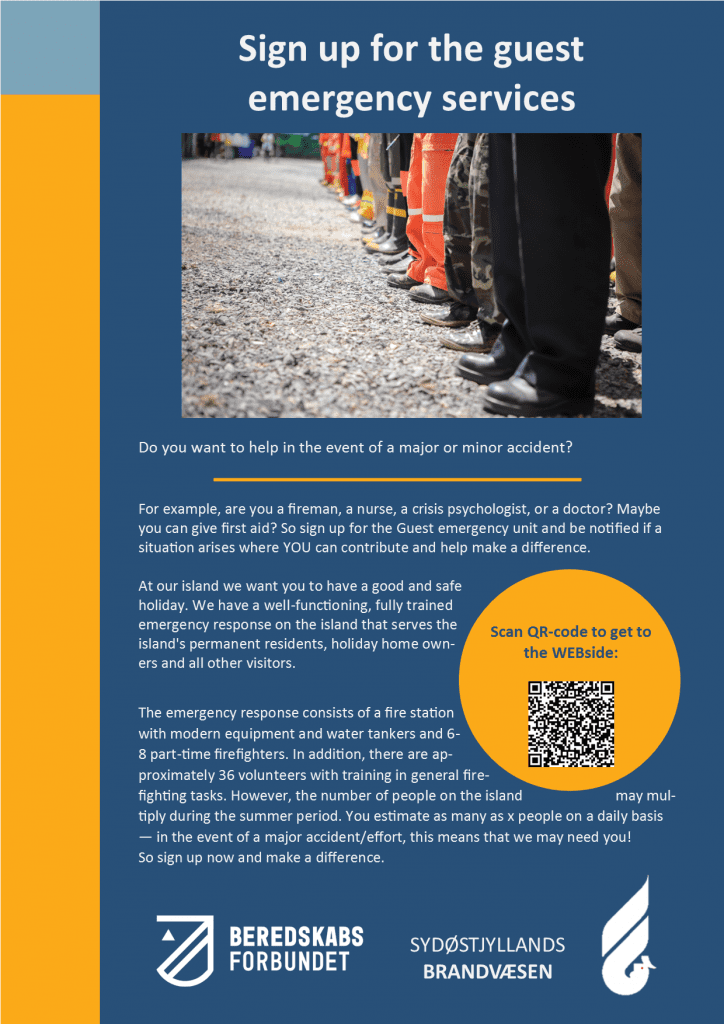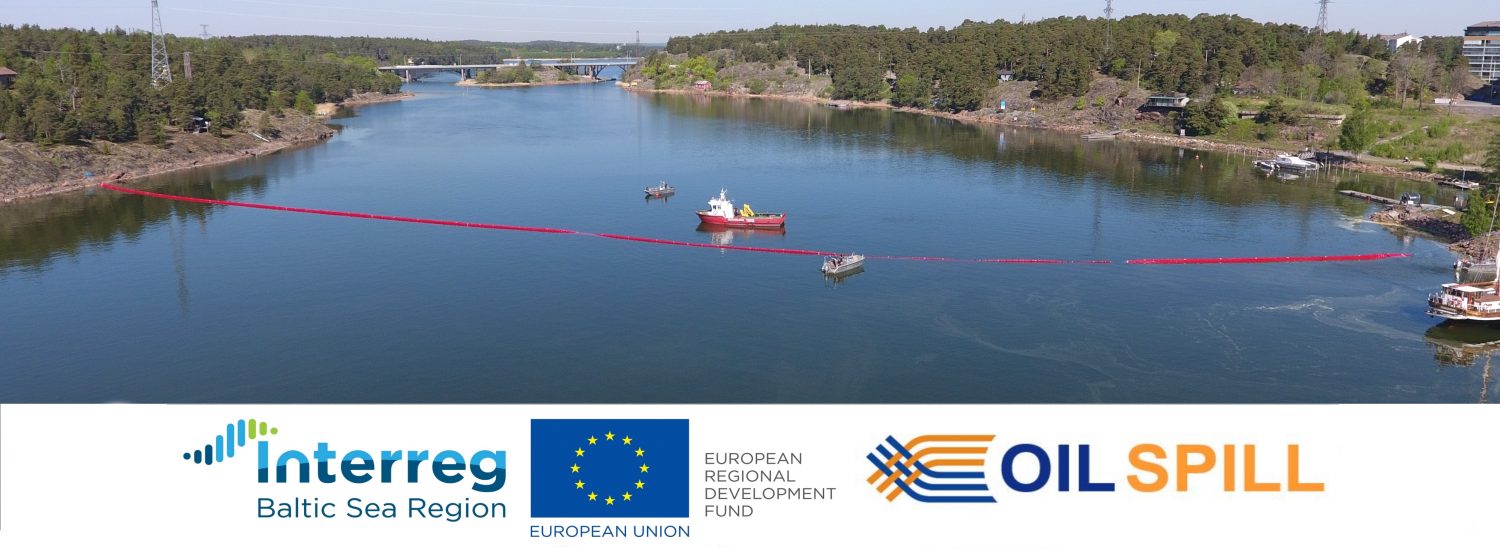Island Preparedness Enables Visitors to Contribute to Oil Spill Response in Denmark
Written by Kia Petersen, Danish Civil Protection League
What do you do when an oil spill hits the coast of a small island in the middle of the ocean and help from the mainland will not be there for several hours? You use the equipment and people who are already on the island.

In 2020, the Danish Civil Protection League started a new project called Island preparedness. Island preparedness allows visitors at the island Anholt in Kattegat to be a part of the local preparedness if they have certain professions, such as firefighters, police officers, doctors, nurses. To enter the so-called guest emergency services, the visitors scan a QR code and register their competencies, arrival date, length of the stay on the island, and contact information. This way, the local emergency service can activate the visitors if they need extra assistance. This is highly relevant during the holidays as the number of citizens on the island rises from around 150 people to several thousand in the peak season.
In the summer holiday 2020, more than 60 people signed up for the guest emergency service in Anholt. As Denmark consists of many more such islands with few permanent residents but many visitors and tourists, we plan to implement the Island preparedness project to cover more islands in 2021. To test the island preparedness and the local emergency service, we are also planning an oil spill exercise during spring 2021. This exercise will train the authorities to handle large oil spills, plan the logistics when most of the personnel and equipment must be sailed to the operation site, and work with the volunteers. The volunteers participating will be from the local volunteer fire brigade and hopefully the many visitors who will have registered to the Island preparedness by then.
“For me, civilians on holidays on a small island are one way of ensuring that remote areas are given resilience when a situation occurs even though the authorities and their resources are very limited there. Not only the island’s own population can help each other, but visitors with civil skills and the desire to help give our society a resilience that is needed in a complex world.” Carsten Iversen, Director, DCPL
Although OIL SPILL and Island preparedness are separate projects, there are certainly several points of convergence, and at the DCPL we see the possibility to start a cooperation regarding the use of volunteers in different emergencies. Furthermore, in the discussions with our OIL SPILL colleagues on the collaboration between volunteers and authorities, for instance, we have been able to share and learn various important insights and examples from around the Baltic Sea region.

Leave a Reply